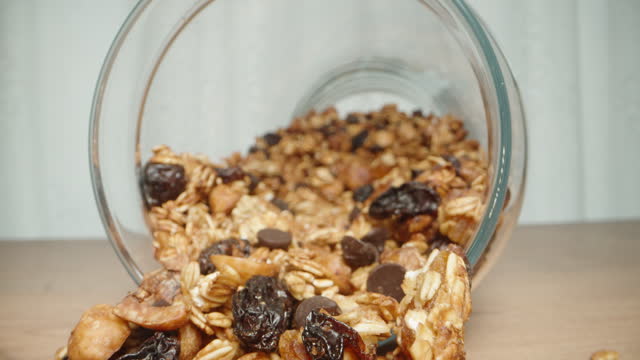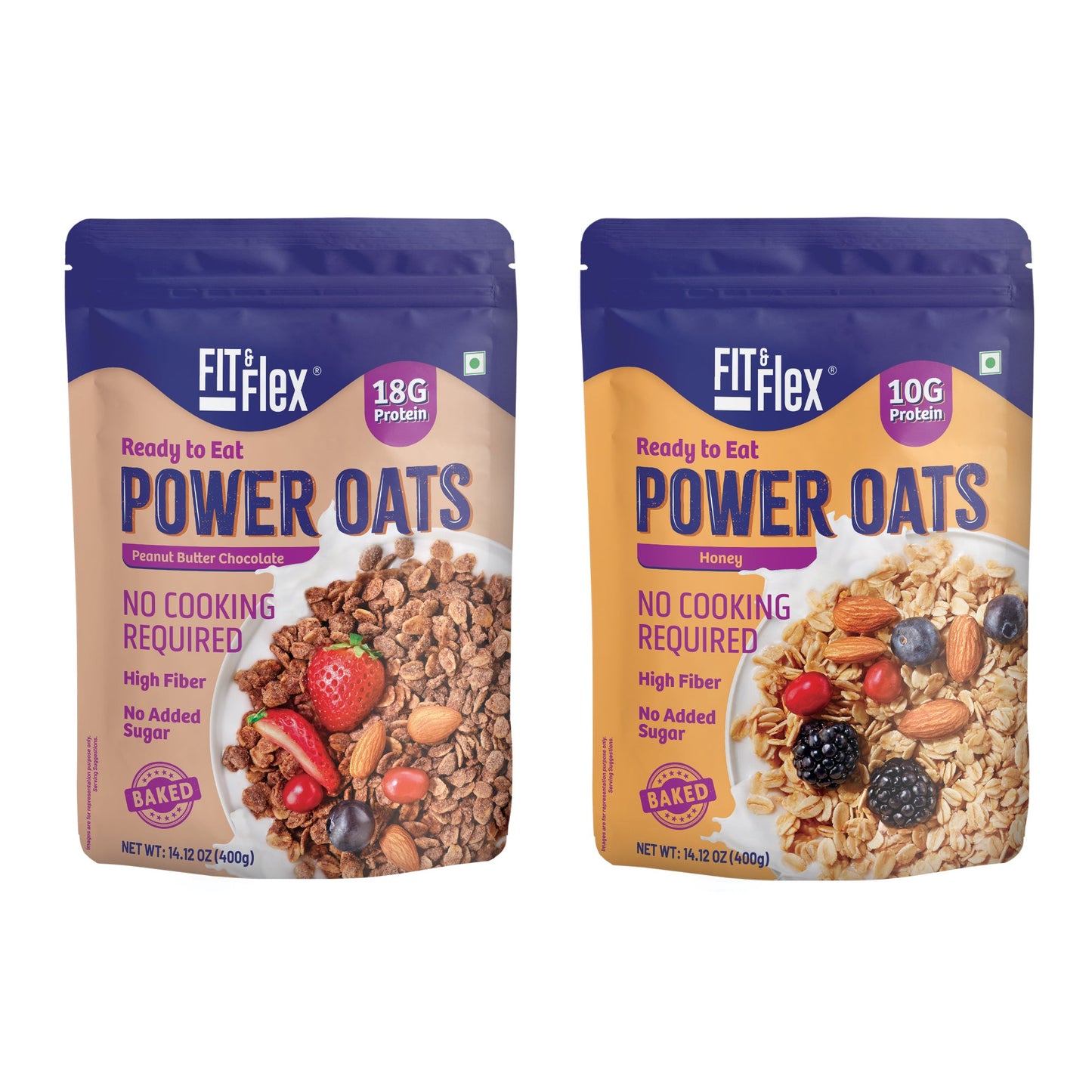Granola Myths You Thought Were True - But Aren't

Granola is often praised for its crunchy texture and versatility as a breakfast or snack option. However, it has also been surrounded by several myths that can be misleading. Let’s explore and debunk some of the most common myths about granola.
Myth: Granola is Always Healthy
Fact: While granola can be a healthy option, not all granola is created equal. Some store-bought varieties are high in added sugars and unhealthy fats. Reading labels and choosing granola with minimal added sugars and natural ingredients can make it a nutritious choice.
Myth: Granola is Low in Calories
Fact: Granola is often calorie-dense due to its ingredients like oats, nuts, and sweeteners. A small serving size can pack a lot of calories, so it’s important to be mindful of portion sizes to avoid consuming excess calories.
Myth: Granola is Only for Breakfast
Fact: Granola is incredibly versatile and can be enjoyed at any time of the day. It makes a great topping for yogurt, smoothie bowls, and even salads. It can also be used in baking or as a crunchy snack on its own.
Myth: Granola is High in Protein
Fact: While some granola varieties contain nuts and seeds that add protein, granola is not typically a high-protein food. To increase the protein content, you can pair granola with Greek yogurt, milk, or a plant-based protein source.
Myth: All Granola is Gluten-Free
Fact: Not all granola is gluten-free. Oats themselves are naturally gluten-free, but they are often processed in facilities that handle gluten-containing grains, leading to cross-contamination. Look for granola labeled as certified gluten-free if you have gluten sensitivities.
Myth: Granola is Always Sweet
Fact: Granola can be sweet or savory. While traditional granola recipes often include sweeteners like honey or maple syrup, there are savory granola recipes that incorporate spices and herbs, making it a versatile ingredient for various dishes.
Myth: Granola is Only for Adults
Fact: Granola can be enjoyed by people of all ages, including children. It’s a great way to add crunch and nutrition to meals and snacks. Just be mindful of the sugar content when serving it to kids.
some frequently asked question:
1. Is granola a healthy breakfast option?
- Granola can be a healthy option when chosen wisely. Look for varieties with minimal added sugars and natural ingredients like oats, nuts, and seeds.
2. How can I make granola healthier?
- You can make granola healthier by making it at home using wholesome ingredients and controlling the amount of added sugars. You can also add nutritious ingredients like flaxseeds, chia seeds, and dried fruits.
3. Is granola suitable for people with gluten sensitivities?
- While oats themselves are gluten-free, not all granola is gluten-free. Some varieties may contain gluten due to cross-contamination during processing. Look for granola labeled as certified gluten-free if you have gluten sensitivities.
4. Can granola help with weight loss?
- Granola can be part of a weight loss diet when consumed in moderation and as part of a balanced meal plan. Be mindful of portion sizes and choose varieties with lower added sugars and healthy fats.
5. Is granola a good source of protein?
- While some granola varieties contain nuts and seeds that add protein, granola is not typically a high-protein food. To increase the protein content, you can pair granola with Greek yogurt, milk, or a plant-based protein source.
6. Can granola be eaten as a snack?
- Yes, granola can be enjoyed as a snack on its own or mixed with nuts, seeds, and dried fruits. Just be mindful of portion sizes, especially if you're watching your calorie intake.
7. Are there savory granola options?
- Yes, granola can be savory as well as sweet. Savory granola recipes often include herbs, spices, and savory seasonings like garlic and onion powder.
8. Is granola suitable for children?
- Granola can be enjoyed by people of all ages, including children. It's a convenient and nutritious option for adding crunch and flavor to meals and snacks. Just be cautious of the sugar content, especially when serving it to kids.
9. Can I eat granola if I'm trying to cut back on calories?
- While granola can be calorie-dense, you can still enjoy it in moderation as part of a balanced diet. Be mindful of portion sizes and choose varieties with lower added sugars and healthy fats.
10. How long does granola last?
- Homemade granola can typically last for several weeks when stored in an airtight container in a cool, dry place. Store-bought granola usually has a best-by date printed on the packaging, but it can last longer if stored properly.
Conclusion
Granola is a delicious and versatile food that can be part of a healthy diet when chosen and consumed mindfully. By understanding the facts behind these common myths, you can make informed decisions about the granola you choose and how you incorporate it into your meals. Enjoy the crunch and flavor of granola in a way that aligns with your nutritional goals and lifestyle.




